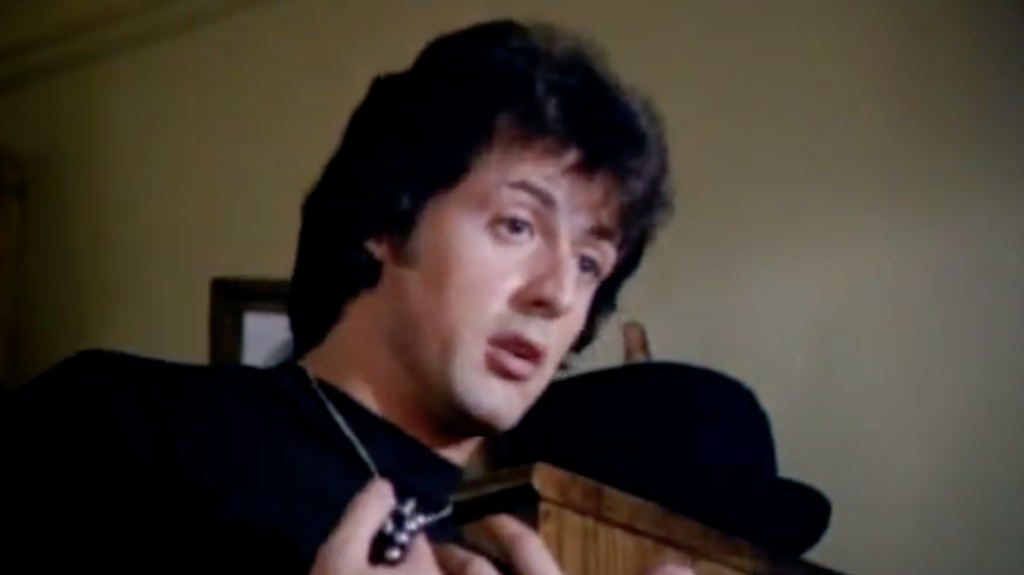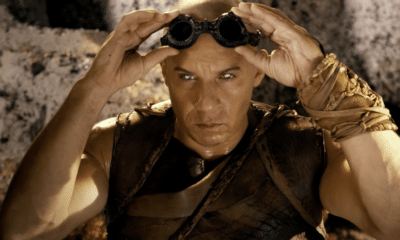To mark the release of Creed II, we take a look back at the original Rocky sequel and just what it means for the franchise as a whole.

YouTube
When a franchise hits as many as eight installments, it is inevitable that some of them get a little lost in the discussion. In the case of Rocky, it could be argued that Rocky II is the one that has fallen victim to a slight degree of neglect. Rocky III has Mr. T and the ‘Eye of the Tiger’, Rocky IV has its heavy-handed, deliriously entertaining, Cold War parables, Rocky V has the notoriety of being considered the worst of the franchise, while Rocky Balboa will always be the final hurrah for the Balboa character. And then, of course, there’s Creed, the spin-off which has injected dynamism into the 40-year-old franchise.
Rocky II is by no means a bad film, it may just not stand out as much as the other sequels, operating as the in-between before the ’80s exploded and changed the way this franchise looked. Yet, it is the follow-up out of the original run of sequels (II, III, IV and V) that comes the closest to matching the authenticity and restraint of the original (at least for the first two thirds), telling a carefully thought out story about what happens to the underdog after they’ve had their million to one shot.
With this in mind, and what with Creed II on the horizon, now seems as good a time as any to reflect on the first Rocky sequel, what drama it manages to forge out of a seemingly less involving story, and what it chooses its thematic concerns to be.
The action picks up almost immediately after the bell rings, with heavyweight Champ Apollo Creed (Carl Weathers) winning on point decision. The two bruised and bloodied fighters are taken to hospital, driven by the funky riff of Bill Conti’s ‘Redemption’ theme. Immediately upon arrival at the hospital, Creed positions the potential for a rematch, much to the woozy Balboa’s surprise. At this point, it is a prospect that doesn’t even bear thinking about. And for quite a stretch of time, that’s exactly what he does.
Sylvester Stallone, operating this time as writer, director, and star for the first (but certainly not the last) time in the franchise entices audiences with this early confrontation between Creed and Rocky for the rematch that they know will eventually arrive. But then he decides to hold off, opting to deliver more of the human drama that made the original connect with audiences. The drama that follows does not feel as restrained as the original, but it charts a course for The Italian Stallion that begins with elation but quickly descends into desperation and anxiety, leading you to infer that much of Rocky’s own inner conflict reflects the pressures Stallone himself felt when trying to come up with a sequel to his breakout hit.
The earlier moments of the film see Rocky in a state of euphoria; he’s had his big shot and went the distance, gaining a level of celebrity along the way, surely life will be easier from here on out? He marries Adrian (the ever-adorable Talia Shire) and is quick to spend the paycheck promised by a job offer to shoot commercials. He buys a new car, extravagant coats for him and Adrian, expensive watches and a brand new house, much to Adrian’s quiet concern.
Soon enough, these moments of reveling in his newfound success fall apart when it comes time for Rocky to actually perform in the commercials. Out of his depth and unable to read the line prompts due partly to an eye injury from the fight and partly down to his borderline illiteracy, Rocky is rejected and left without a pay cheque and in a desperate situation to provide for his now pregnant wife.
From here, Stallone chooses to focus on Rocky’s attempts to find a line of work that doesn’t result in him using his fists. The film becomes about a man struggling to escape the kind of life he thought he was already rid of. He’s turned away from an office job due to not even having a High School diploma, gets laid off working in the meatpacking factory, and ends up carrying spit buckets at Mickey’s (Burgess Meredith) gym.
As much as Rocky wants to deny it, being a fighter is the only thing he knows how to do well, and believes it’s the only way he can provide for his family. It is the only way he knows how to define himself. It is in this notion that the film articulates exceptionally well in its first third. No matter what Rocky, tells himself, what he has to return to is fighting. It’s what everyone expects of him, from the characters within the film to the film-watching audience itself. It is an expression of the pressures Stallone himself must have faced when being asked to deliver a sequel to his breakout hit.
After a melodramatic detour involving Adrian falling into a coma, the film and its thematic concerns take a turn once Adrian awakens. She asks Rocky to do just one thing for her: ‘Win!’ Just as the bell strikes on the score, a shift suddenly occurs, as the film morphs from being an introspective look at how a man must deal with expectation following success, into one that is in the service of affirming the legend of Rocky Balboa.
Two training montages follow in quick succession, the first being a show of strength and determination, while the other is a reprisal of ‘Gonna Fly Now’. This time, the neighbourhood kids join Rocky on his run through the streets of Philly, leading up to the famous Art Museum steps where they all jump for joy once a crowd has gathered at the top.
This rendition of the montage is undoubtedly cheesy, and less about Rocky the individual than it is the public persona of him. But it is a moment in which you can begin to see 1970’s Hollywood cinema ending and the 1980’s emerging, as the film strives for more sensationalist sensibilities that went on to characterise the later sequels. It takes the key iconic moment from the first film and utilises it to establish the character’s own level celebrity in the world of the film, as well as acknowledging the reception of the first film on the public consciousness, forever tying Stallone’s own ego with the character of Balboa. The original sets up the iconography and this sequel affirms it.
If that montage wasn’t enough to establish this film as one that affirms the myth of ‘The Italian Stallion’ in the cultural zeitgeist, then the rematch that we’ve been promised from the very opening certainly does. With the build-up as drawn out as it has been, the stage is set for the rematch of the century, and boy, it does not disappoint.
Stallone once again opts for a sensationalist approach in his framing of the final act bout. Much more stylised than anything John G. Avildsen presented in the original, the Rocky II fight incorporates slow-mo slugs, more heightened punching sound effects. We see Adrian’s reactions to the fight as she watches from home, a perspective we were denied in the first film till the very final moment. Its driven much more by emotion than it is authenticity, and it is electrifying, particularly in the dying moments as both fighters fall to the mat and face the count from the referee.
When Rocky (just about) stumbles to his feet in the last second, your elation matches that of the crowd’s and Adrian’s, heightened even more by the film’s most iconic (and most myth affirming) moment: ‘Yo Adrian, I did it!’ The film’s transformation from delivering drama that was initially in a similar key to the original to a more sensationalist exhibition in the service of myth-making is complete. The ultimate underdog has gained the ultimate victory in his second round.
It is not hard to see how Creed II faces similar obstacles, what with it following a critically adored predecessor that was hailed for its palpable drama. The concept at its centre, that of having Adonis Creed face the son of the man who killed his father, would suggest that it is following a similar route of reaffirming the mythology of the Rocky franchise as a whole.
What it has hopefully learned from the original Rocky sequel is that it has to balance the more contrived elements that come hand in hand with this breed of sequel, with a sense of character and a clear thematic engagement, one which can surprise and deliver the moments that electrify. Time shall tell, but Rocky II more than offers a blueprint of how to approach ‘Round Two’ of the underdog story, without sacrificing the heart that audiences fell in love with. Yo Rocky, he did it.
Creed II is released in cinemas on 30th November 2018.

Latest Posts
-


Film Trailers
/ 5 hours agoNew look at Agnieszka Holland’s celebrated ‘Greed Border’
U.S. distributor Kino Lorber has released a new-look trailer for Agnieszka Holland’s new film...
By Paul Heath -


Film Trailers
/ 5 hours agoA new trailer for animated sequel ‘Despicable Me 4’
Animation house Illumination and Universal Pictures have released a new trailer for Despicable Me...
By Paul Heath -


Film Trailers
/ 5 hours agoA trailer for Stephen Fry and Lena Dunham-led drama ‘Treasure’
The film had a world premiere at this year's Berlinale.
By Paul Heath -


Film News
/ 1 day agoNew ‘Riddick’ film on the way
The film will shoot in Europe this summer.
By Paul Heath















